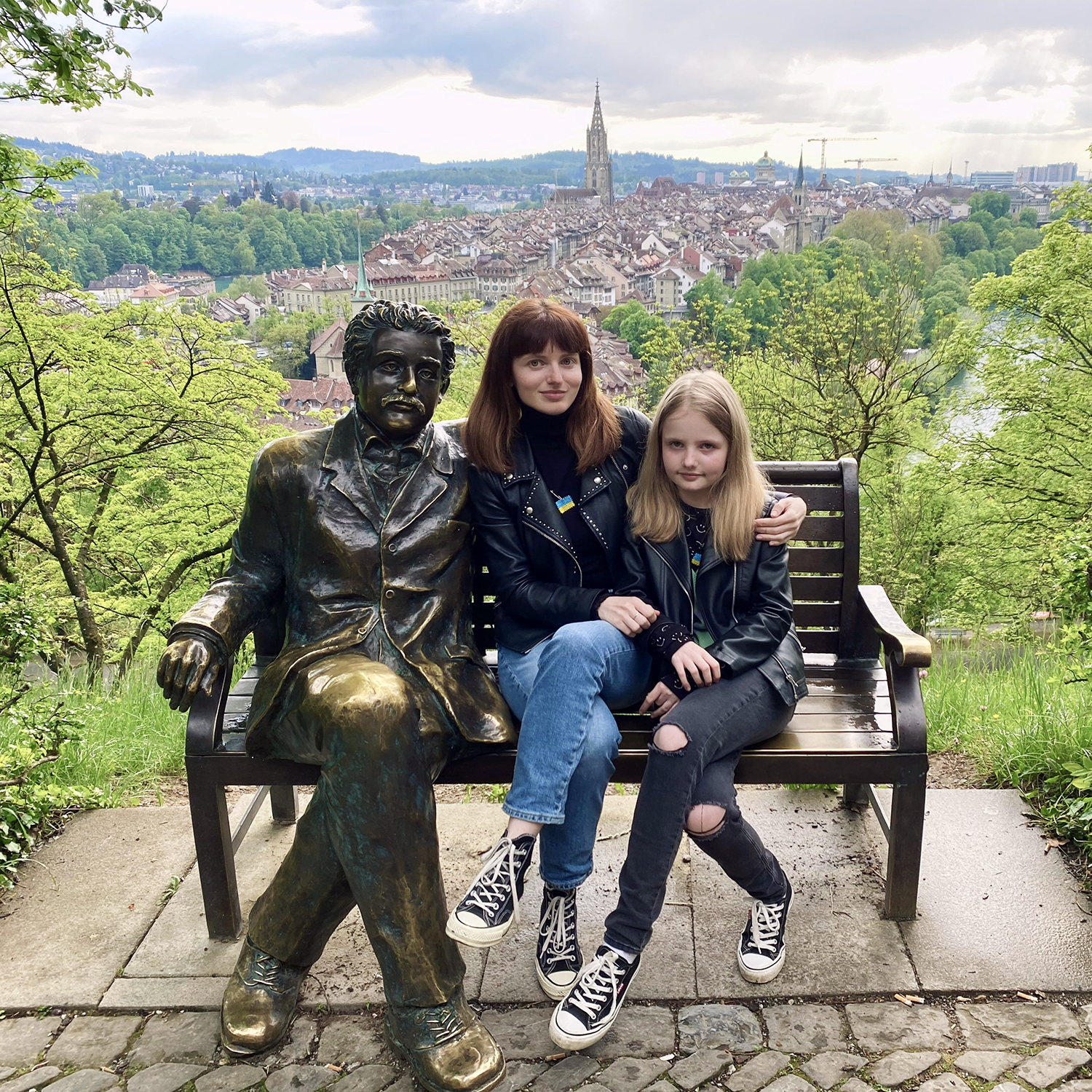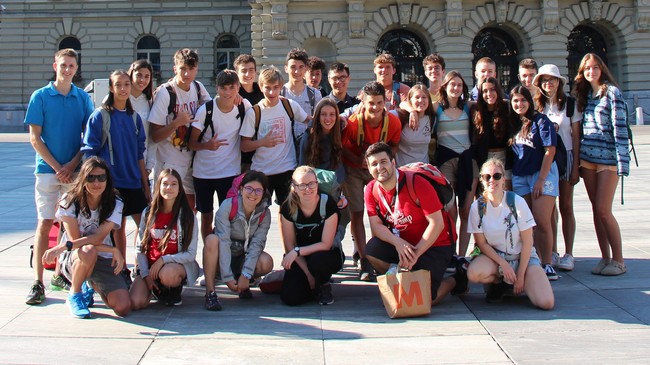
Viktoriia and Polina: physically in Bern, mentally in Ukraine

Viktoriia Bilychenko and her daughter Polina have settled well into life in Bern. They are learning German and have worked out where to go shopping and which bus to take to the station. It’s their new life. They spend much of their remaining hours in contact with relatives who live in the southern Ukrainian town of Mykolaiv.
Viktoriia is cooking while talking on her mobile phone to her mother-in-law. When the mother-in-law sees me on the screen, she thanks me in tears for “adopting” her daughter-in-law and granddaughter. She is happy they are both safe. Life in Mykolaiv is terrible, she says. Air-raid warnings and bombings are becoming more and more frequent. She wants to leave, but her husband doesn’t.
They also have daily contact with Andrei, exchanging photos and videos with the husband and father who has stayed behind. Andrei is a professional puppeteer. His life is tough. He is either in their flat in the centre of the city or in the cellar if there are bomb alerts. There has been no running water in Mykolaiv for weeks, so every few days he has to take his motorbike to a water truck to stock up – a risky and dangerous undertaking
Between two worlds
One morning, when a helicopter was circling noisily over Bern to remove fallen trees, Polina, who is 10, was scared. Memories of the war, which she suddenly thought had reached Bern, rose to the surface. I don’t really know how she is coping. She misses her father, her grandmother, her friends and her bedroom, for sure. We can barely communicate beyond “good morning,” “good night,” and “did you sleep well?” That will change: Polina is now going to school and has just celebrated her 11th birthday in Bern.

Viktoriia occasionally tells me what is happening back home. She watches President Zelensky’s video messages and those of Vitaliy Kim, the governor of the Mykolaiv region, and she tells me of the nightmares that plague her and how she cried when she saw the terrible images from Bucha. I don’t ask too much – if something comes out, I listen. Everything in its own time.
Viktoriia spends a lot of time doing jigsaw puzzles in the evenings. She can kneel on the floor for ages, sorting little jigsaw pieces and putting them together – she is so concentrated and relaxed, she even forgets to eat. She has just completed a 1,000-piece puzzle, “Alpine Fun” (with cheese, an alphorn, cows and mountains) in three evenings. Before that, she did Picasso’s dove of peace.

I constantly wonder how it feels when parts of your own country are reduced to rubble, your hometown is being bombed and millions of your compatriots are being driven out. Viktoriia and Polina don’t know when they will see their relatives again and when this nightmare will be over. They themselves are now in Bern, 2,500 km away from home, learning German, and the child is going to school. But what they really want is to go home as soon as possible, to familiar surroundings, to lives that changed dramatically on February 24.
Homesick
All I can do is offer a roof over their heads, help them fill out forms, cook with them from time to time or do something with them. I can’t end the war, unfortunately.
The pain and heaviness of the whole situation and the degree of homesickness became clear on a visit to the Bern Jazz Festival at the end of April, when the First All Ukrainian Youth Jazz Band took to the stage. The young students from Ukraine first played classic jazz and bossa nova, then three well-known Ukrainian songs at the end.

One of them was called майже весна (Almost Spring), the announcer explained to the audience. “Outside everything is blossoming, spring is coming. Here at home there is war and winter in our hearts.” The bassist clung to her instrument with tears in her eyes. She wasn’t the only one to be moved.
Translated from German by Catherine Hickley.

More
Viktoriia and Polina are now living with me

In compliance with the JTI standards
More: SWI swissinfo.ch certified by the Journalism Trust Initiative
















![The four-metre-long painting "Sonntag der Bergbauern" [Sunday of the Mountain Farmers, 1923-24/26] had to be removed by a crane from the German Chancellery in Berlin for the exhibition in Bern.](https://www.swissinfo.ch/content/wp-content/uploads/sites/13/2025/12/01_Pressebild_KirchnerxKirchner.jpg?ver=cb688ed5)















You can find an overview of ongoing debates with our journalists here . Please join us!
If you want to start a conversation about a topic raised in this article or want to report factual errors, email us at english@swissinfo.ch.